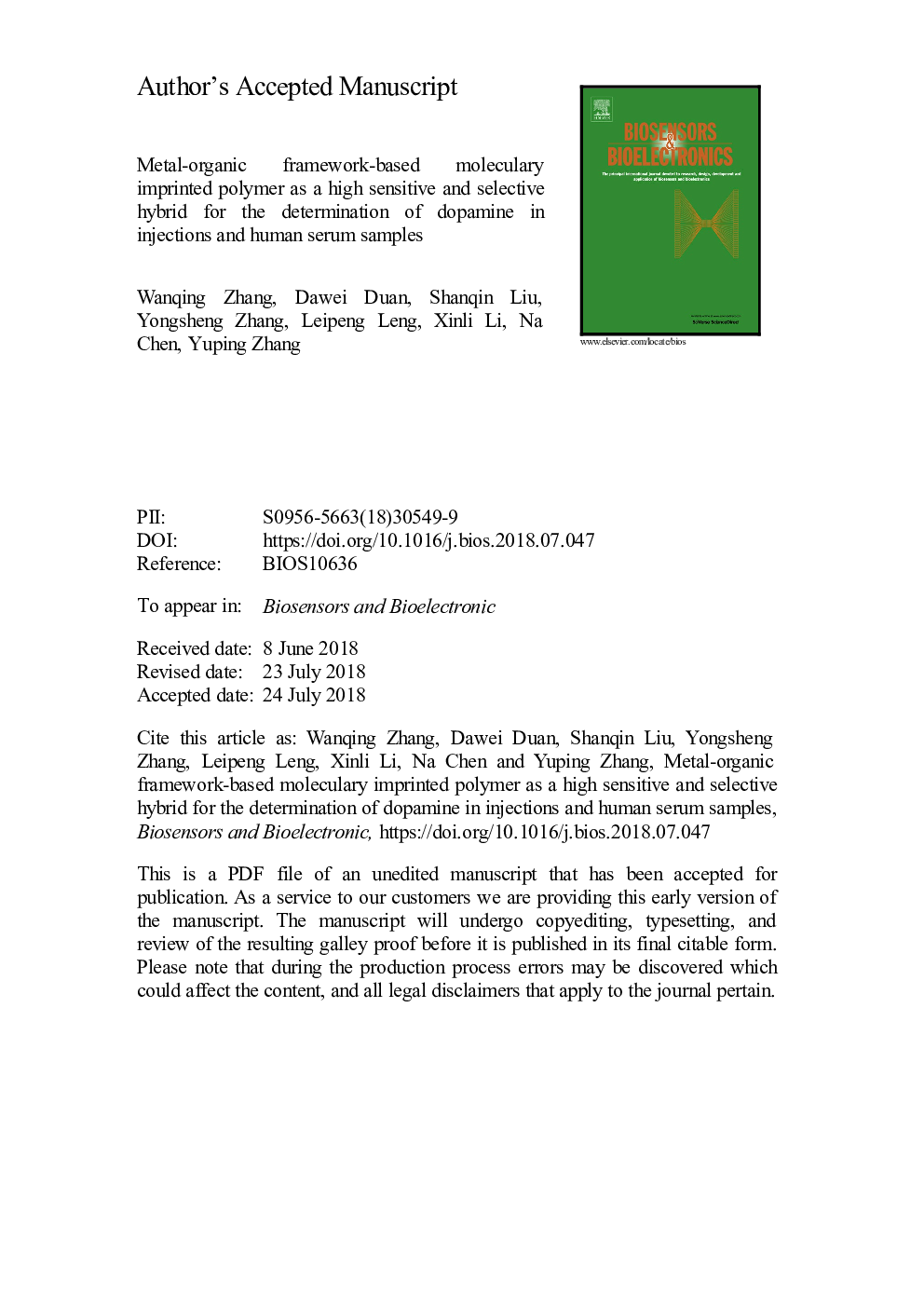| Article ID | Journal | Published Year | Pages | File Type |
|---|---|---|---|---|
| 7228930 | Biosensors and Bioelectronics | 2018 | 31 Pages |
Abstract
A highly sensitive and selective molecular imprinting polymer (MIP) sensor was fabricated based on polypyrrole (PPy)/ZIF-67/Nafion hybrid modified glassy carbon electrode (GCE) for the determination of dopamine (DA). The ZIF-67 material was facilely prepared by using hydrothermal synthesis method; subsequently, the PPy/ZIF-67/Nafion hybrid was obtained through a one-pot synthesis method. The physical properties of the materials and the modified sensors were investigated by using X-ray powder diffraction (XRD), Fourier transform infrared spectroscopy (FTIR), Nitrogen adsorption-desorption isothermal (BET), X-ray photoelectron spectroscopy (XPS), Scanning electron microscope (SEM) and Atomic force microspectroscopy (AFM) apparatus. Cyclic voltammetry (CV), differential pulse voltammetry (DPV) and electrochemical impedance spectroscope (EIS) were used to evaluate the electrochemical performance of the sensors. The influence factors controlling the performance of the MIP sensor were studied and included scan rate, pH value and scan cycles. Under optimal conditions, DPV peak was linearly related to DA concentration over two concentration intervals (0.08-100â¯ÂµM and 100-500â¯ÂµM). The detection limit of PPy/ZIF-67-MIPs/Nafion/GCE sensor for DA was 0.0308â¯ÂµM (S/Nâ¯=â¯3) and sensitivity was equal to 1.656â¯ÂµAâ¯ÂµMâ¯cmâ2. Furthermore, good reproducibility, long-term stability and favorable selectivity were obtained in the experiment. Moreover, the fabricated MIP sensor was successfully applied in the determination of DA concentrations in injection and human serum samples with satisfactory recoveries.
Related Topics
Physical Sciences and Engineering
Chemistry
Analytical Chemistry
Authors
Wanqing Zhang, Dawei Duan, Shanqin Liu, Yongsheng Zhang, Leipeng Leng, Xinli Li, Na Chen, Yuping Zhang,
